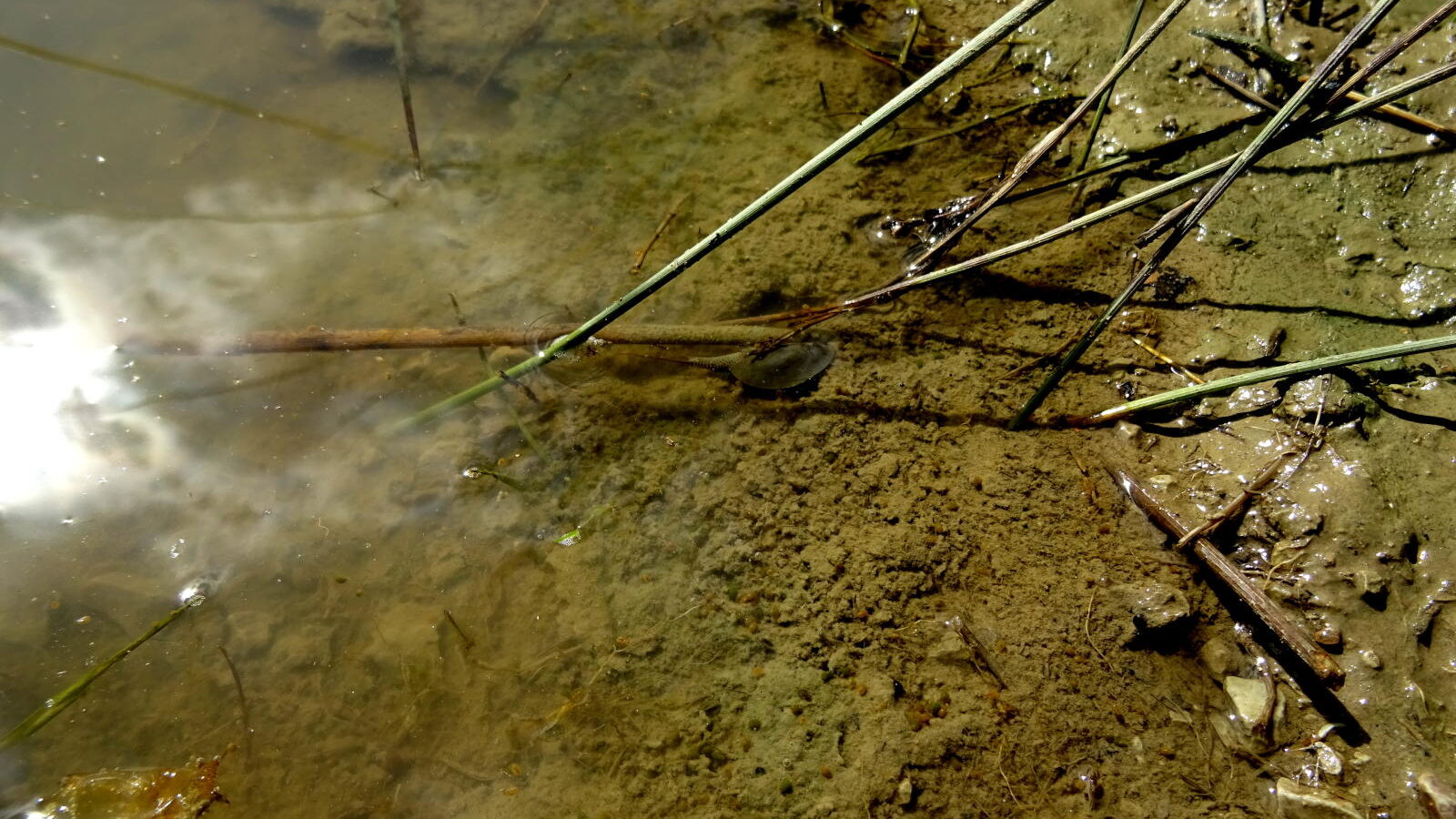Guide
Triops habitat: How triops trick the fish
Evolution has chosen an unusual habitat for Triops for aquatic animals – temporary waters. This means that our Triops live in pools and these only exist at certain times of the year. The extraordinary way of life of Triops is the reason why they live in temporary waters. Triops feed on small animals in the substrate and are dependent on the water having a fine substrate with lots of small animals. For this reason, Triops cannot live in fast-flowing waters such as rivers or streams. The current would be far too fast for them to dig for food and the substrate would also be far too coarse. Stagnant waters are the perfect Triops habitat and are an excellent source of food, as the density of microorganisms is much higher there and these waters are a veritable breeding ground for mosquito larvae. In this blog post, I explain how Triops survive in the wild so that they are not eaten by fish.

Triops habitat: The Triops egg depot
The Triops eggs are very small and are glued together with the sand to form small lumps with the help of a secretion secreted by a gland. The secretion acts like a natural adhesive and has a low pH value. This makes the Triops eggs almost immune to fungal infestation and bacteria. It also ensures that the small bundles are not so easily carried away by the current or the wind on land. The clumps are therefore better protected so that they are not eaten by other animals. Nevertheless, it has been observed that some eggs that were eaten by another animal left the animal’s gut unharmed and were still able to hatch afterwards. The living conditions of Triops require a body of water with little to almost no current, especially in the riparian zones. In these areas, it is essential that the substrate is fine-grained enough to allow the Triops to attach and fix their eggs to the sand.
Another important aspect is the absence of aggressive bacterial cultures in the water. This is of great importance, as the Triops eggs sometimes remain unprotected in the water for several weeks to months and are exposed to the effects of bacteria that could harm them. A body of water that is fed by rainwater is particularly suitable for the Triops’ way of life. Rainwater is characterised by its exceptional purity and is virtually free of bacterial cultures that can multiply in water that has been stagnant for a long time. As a result, a pond fed by rainwater is the ideal habitat to fulfil the Triops’ requirements.
Fish are the Triops’ biggest predators – how the Triops trick the fish
As fish are the Triops’ biggest predators, they would be mercilessly at the mercy of fish in a river, lake or ocean. The Triops would be wiped out within a very short time. Evolution developed an ingenious survival strategy for the Triops even before the fish could develop. Our Triops have been around since the Permian period, over 230 million years ago, whereas fish as we know them developed much later. The Triops therefore had long enough time to prepare for survival before the fish. Both Triops and fish need water to survive. Triops eggs do not need water to survive. Fish, on the other hand, do. Therefore, the Triops must somehow manage to reach sexual maturity and lay as many eggs as possible before they are eaten by the fish. The eggs are laid close to the shore. When the water level in the Triops habitat drops due to evaporation, the Triops eggs are protected from predators in the water.
To protect them from the wind, they are additionally glued together with the sand to form small bundles. The very robust nature of the eggs makes them resistant to the weather and other environmental factors. Even scorching heat and sub-zero temperatures cannot harm the eggs. And this is the advantage that Triops have over fish. After the water has evaporated, all the Triops die, but so do all the fish and their spawn. After the pond has filled up with water again in the next rainy period, it remains free of fish. The Triops eggs previously deposited on the banks are washed into the central region of the pond by the rain over time and hatch there within the next few days. The number of hatched nauplii is considerable, as the entire generation hatches in just a few days.
Although the tiny nauplii are extremely sensitive and only a few of them will manage to survive, a sufficient number of animals will nevertheless emerge, which in turn will lay eggs and start the cycle all over again. As a result of the drought and the absence of fish, the Triops no longer have to fear predators. As the nauplii grow into adult Triops in the Triops habitat, the incoming water will soon bring with it a variety of small insects, worms and other small animals that will serve as a food source for the Triops. This remarkable and effective phenomenon of nature has ensured the survival of this unique animal species for many millions of years.
- The fascinating history of dinosaurs: a journey through time - 26. January 2025
- Palaeontology: Almost complete skull of the ratite Diatryma discovered in Geiselthal - 25. January 2025
- Palaeontology: Pterosaurs were once prey for prehistoric crocodiles - 24. January 2025